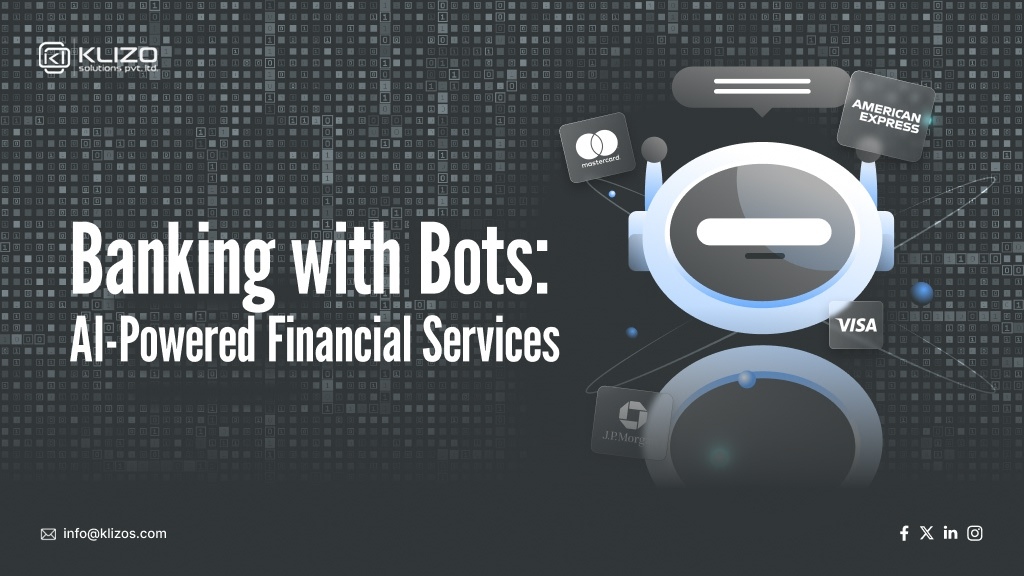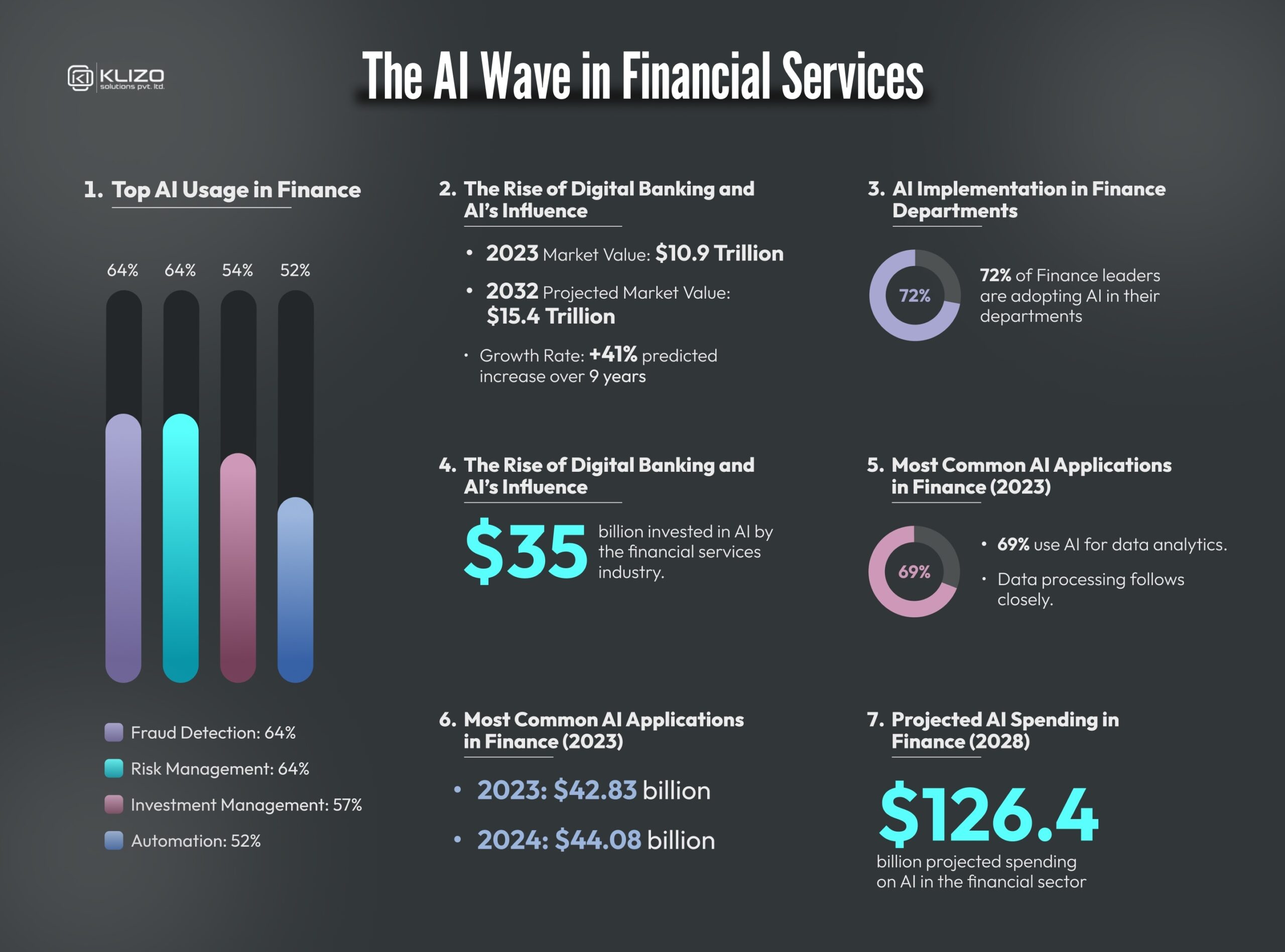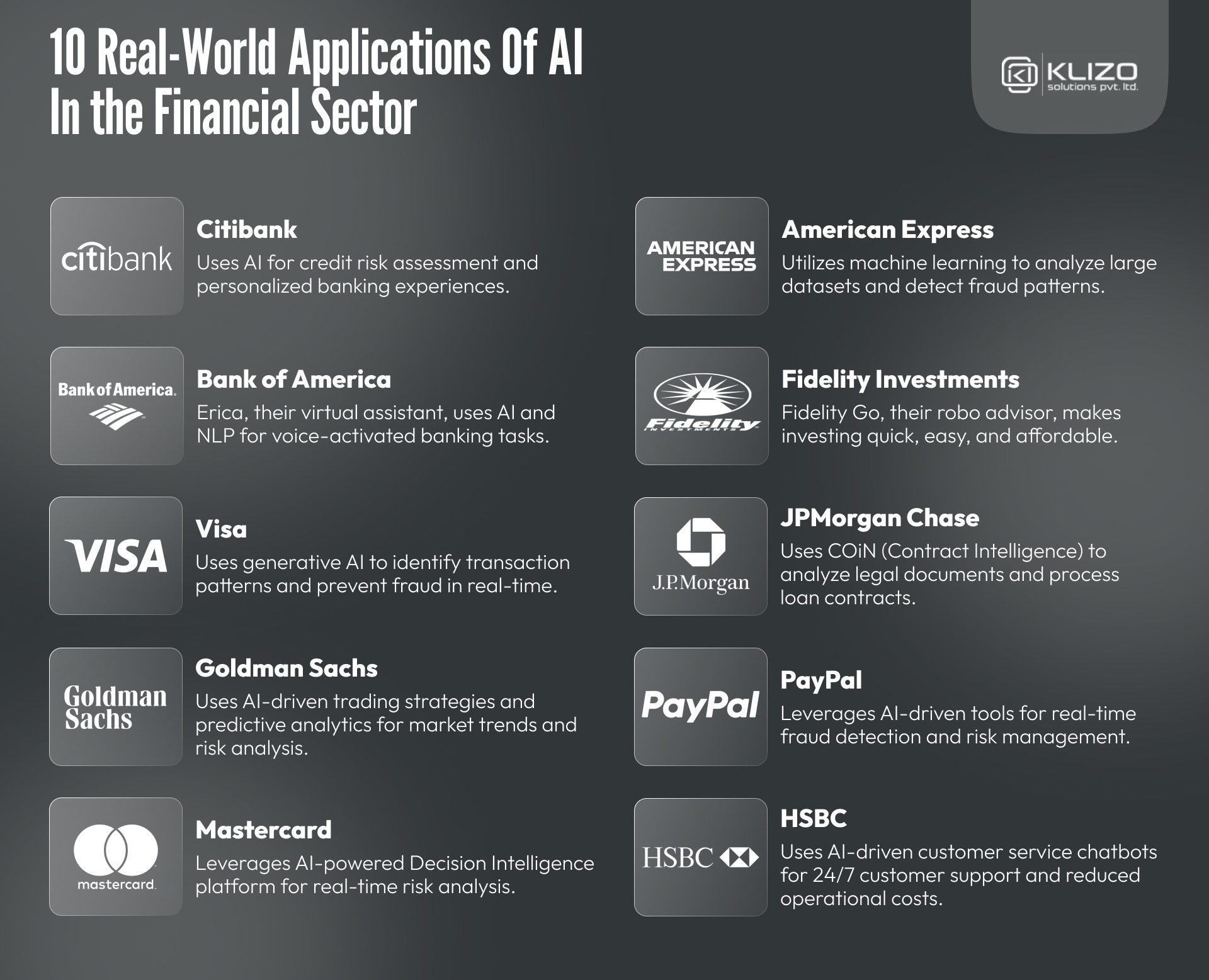


Remember when bankers were the only ones making all the financial decisions? Well, those days are going to be prehistoric soon. Algorithms and AI-powered tools are the new financial wizards, stepping in to reshape the financial services industry with the precision of a Swiss watch.
From detecting fraud to offering personalized financial advice, these common operations in the financial sector require a good amount of workforce, operating time, and a few nights without sleep. With AI effortlessly tackling all the tedious tasks, those sleepless nights are distant memories now. It’s like having a financial superhero on call 24/7, minus the cape and the dramatic theme music.
So, buckle up and get ready to explore the rise of Artificial Intelligence in financial services. It’s a brave new world where machines call the shots, and humans are along for the ride.
The technological shift, backed by Artificial Intelligence in financial services, is not just a trend, but a fundamental transformation that is reshaping how financial institutions operate, deliver services and interact with customers. Here’s a look at some of the key ways AI is revolutionizing the financial services industry.
Investment research is a critical component of the financial services industry, and Artificial Intelligence in financial services is enhancing this process by providing more accurate and timely insights. Traditional investment research methods often involve manual data analysis and interpretation, which can be time-consuming and prone to errors. AI can streamline this process by automating data collection and analysis, providing financial institutions with more accurate and timely insights.
AI-powered investment research tools can analyze vast amounts of data, including financial statements, market trends, and economic indicators, to identify investment opportunities. These tools can also monitor news and social media to detect market sentiment and potential market-moving events.
Predictive analytics in finance is another area where Artificial Intelligence in financial services is making a significant impact. By analyzing historical data and identifying patterns, AI can make predictions about future market trends, customer behavior, and potential risks. This capability enables financial institutions to make more informed decisions and anticipate potential challenges.
For example, AI can analyze historical market data to predict future price movements of stocks or other financial instruments. This predictive capability can help traders and investors to make more informed decisions and capitalize on market opportunities. Similarly, AI can analyze customer data to predict future behavior, such as the likelihood of a customer defaulting on a loan or switching to a competitor.
Algorithmic trading, driven by AI for investment optimization, is revolutionizing the financial markets. These algorithms can process large volumes of data at lightning speed, identifying trading opportunities and executing trades with minimal human intervention. It not only improves the efficiency of trading operations but also reduces the risk of human error.
In addition to identifying trading opportunities, Artificial Intelligence in financial services can also help manage the risks associated with trading. By analyzing market data and historical trends, AI can predict potential market movements and adjust trading strategies accordingly. This proactive approach to risk management can help traders navigate unstable market situations and protect their investments.
Traditional fraud detection methods rely heavily on predefined rules and manual reviews, which are not only time-consuming but also prone to errors. In contrast, fraud detection using AI can streamline the process by learning from historical data to identify patterns and anomalies that might indicate fraudulent behavior. For instance, if an AI system detects a transaction that deviates significantly from a customer’s usual spending habits, it can trigger an alert and take preventive measures.
AI can also adapt to new and emerging fraud tactics. Fraudsters are constantly evolving their methods, and AI in banking systems can stay ahead of these changes by continuously learning and updating their detection algorithms. This dynamic capability is crucial in maintaining the security and integrity of financial transactions.
AI-powered chatbots and virtual assistants are now commonplace in banking and financial services. These tools provide 24/7 customer support, handling routine queries and transactions efficiently, freeing up human agents to focus on more complex issues. By leveraging natural language processing (NLP) and machine learning, these chatbots are becoming increasingly sophisticated, offering personalized financial advice and support.
Moreover, AI can analyze customer interactions and feedback to continually improve service quality. It can identify common customer pain points and suggest enhancements to the user experience. This continuous improvement loop ensures that financial institutions can keep up with evolving customer expectations.
In the realm of investment management, AI can analyze market data in real-time to identify trends and make predictions about future market movements. This capability enables portfolio managers to make data-driven investment decisions, minimizing risks and maximizing returns. Furthermore, AI in risk management can simulate various market scenarios to test the resilience of investment strategies, providing valuable insights into potential vulnerabilities and areas for improvement.
For example, AI can assess the risk profile of a loan applicant by analyzing a wide range of data points, including credit history, income levels, spending patterns, and even social media activity. This comprehensive analysis provides a more accurate picture of the applicant’s ability to repay the loan, reducing the risk of default.
One of the most exciting applications of Artificial Intelligence in financial services is the ability to provide highly personalized experiences. By analyzing customer data, AI can offer tailored financial products, investment advice, and spending recommendations. This level of personalization not only enhances customer satisfaction but also helps financial institutions to build stronger relationships with their clients.
For instance, AI-driven customer support in banking can analyze a customer’s spending patterns to recommend budgeting strategies or identify opportunities for savings. It can also offer personalized investment advice based on the customer’s risk tolerance, financial goals, and market conditions. Robo-advisors, such as Betterment and Wealthfront, leverage AI to create and manage personalized investment portfolios for their users.
Traditional credit scoring models often rely on a limited set of data points, which can result in inaccurate assessments of an individual’s creditworthiness. AI and financial automation can analyze a broader range of data, including social media activity, payment history, and even behavioral patterns, to provide more accurate and fair credit scoring. AI-powered credit scoring opens up access to credit for individuals who might otherwise be overlooked by conventional methods.
Artificial Intelligence in financial services can help identify and mitigate potential biases in traditional credit scoring models. By analyzing a wider range of data points and using advanced machine learning algorithms, AI can ensure that credit decisions are based on objective criteria, reducing the risk of discrimination and improving access to credit for underserved populations.

From servers to automation, AI is revolutionizing various industries with super-efficient tools and features. Although AI adoption comes with a few challenges like data privacy concerns, data authenticity issues, and regulatory compliance, it can be solved and integrated smoothly with the best practices for AI adoption. Let’s discuss the key benefits of using Artificial Intelligence in Financial Services.
AI and financial automation reduces manual tasks, freeing up resources for strategic initiatives. For example, AI-powered chatbots can handle customer queries 24/7, reducing the workload on customer service representatives.
Artificial Intelligence in Financial Services minimizes human errors in calculations, data entry, and decision-making, keeping your environment error-free and updated. In risk management, AI can provide precise credit assessments, reducing the chances of bad loans.
Automated processes and fraud detection using AI can significantly cut operational expenses compared to the traditional approaches. Automating customer services in the financial sector can reduce a significant amount of costs.
AI analyzes customer behavior to offer personalized services based on search history and purchase tendencies. Increased personalization enhances customer satisfaction and loyalty.
AI systems can handle large volumes of data and transactions, making them scalable to meet the ever-growing demands of the financial sector.
Artificial Intelligence in Financial Services is anticipated to expand from USD 38.36 billion in 2024 to an impressive USD 190.33 billion by 20230, experiencing a robust compound annual growth rate (CAGR) of 30.6% throughout the forecast period. With such astounding growth, the future of artificial intelligence in financial services looks very promising, with several emerging trends and developments.
The integration of AI and blockchain technology can enhance transparency, security, and efficiency in financial transactions. AI can analyze blockchain data to identify patterns and detect fraud, while blockchain can provide a secure and immutable record of transactions.
Fintech AI solutions have the potential to play a significant role in promoting financial inclusion by providing access to financial services for underserved communities. For example, AI-powered credit scoring models can assess the creditworthiness of individuals without traditional credit histories, enabling them to access loans.
The advent of quantum computing holds the potential to revolutionize the use of artificial intelligence in financial services. Quantum computers are known for processing gigantic amounts of data at unprecedented speeds, enabling more complex and accurate AI models.
The development of financial AI applications, such as intelligent investment platforms and personalized insurance plans, will continue to grow. These products will offer enhanced features and improved customer experiences.
The focus on ethical artificial intelligence in financial services is increasing, with greater emphasis on fairness, transparency, and accountability. Financial institutions will adopt ethical AI practices to ensure responsible and sustainable AI usage.

The role of artificial intelligence in financial services includes enhancing fraud detection, optimizing risk management, improving customer service through chatbots, providing personalized financial advice, automating trading strategies, and ensuring regulatory compliance.
Some common AI applications in finance include fraud detection, algorithmic trading, robo-advisors, credit scoring, customer service chatbots, risk management, and personalized financial product recommendations.
Artificial intelligence in financial services carries risks such as data privacy breaches, algorithmic bias leading to unfair outcomes, lack of transparency in AI decision-making, regulatory compliance challenges, and potential job displacement due to automation.
Financial institutions can implement AI securely by employing robust encryption methods for data storage and transmission, using anonymization techniques to protect sensitive data, and implementing strong cybersecurity measures by ensuring strict access control and regular audits.
Blockchain and AI can work together to improve financial services by enhancing security, transparency, and efficiency. Blockchain provides a secure immutable ledger for transactions, while AI offers real-time fraud detection and personalized insights. |
Ready to greet the future? AI is revolutionizing the commonly known paradigm of financial services, offering unprecedented opportunities for innovation and efficiency. From fraud detection to investment strategies, artificial intelligence in financial services is the hero we need and deserve.
So, if you’re wondering whether utilizing artificial intelligence in financial services will streamline your business operations, then the answer is absolutely YES! And we’re here to make sure it happens.
At Klizo Solutions, we specialize in harnessing the power of artificial intelligence to streamline services across various industries. Our team of expert developers ensures better performance, enhanced efficiency, and cost-effectiveness at your fingertips.
Ready to level up your business with AI-integrated financial services? Contact us today and let’s take a step toward a smarter future!
Joey Ricard
Klizo Solutions was founded by Joseph Ricard, a serial entrepreneur from America who has spent over ten years working in India, developing innovative tech solutions, building good teams, and admirable processes. And today, he has a team of over 50 super-talented people with him and various high-level technologies developed in multiple frameworks to his credit.

Subscribe to our newsletter to get the latest tech updates.